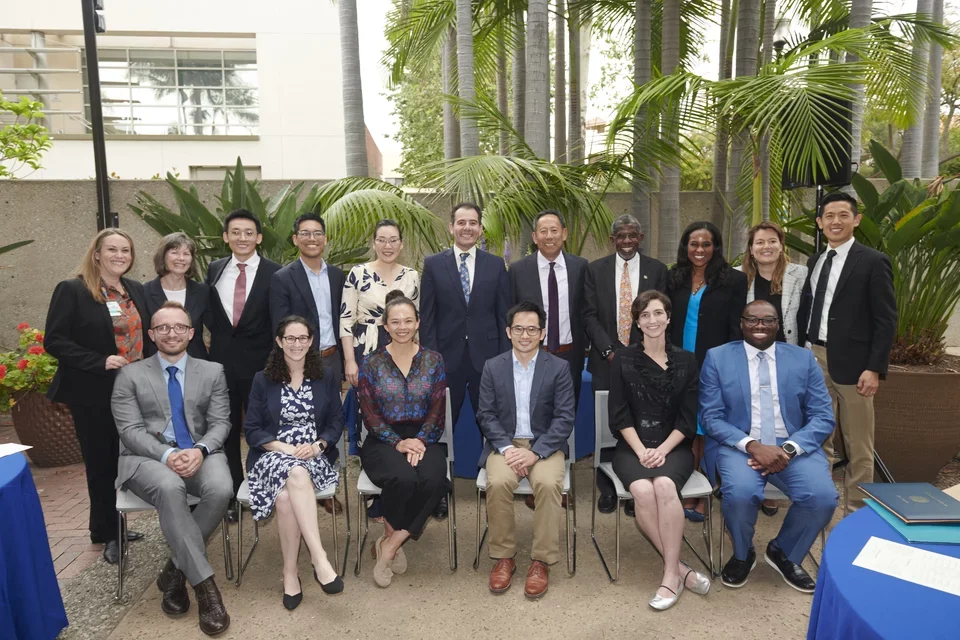About STAR
Specialty Training and Advanced Research
The Specialty Training and Advanced Research (STAR) Program at the David Geffen School of Medicine at UCLA provides aspiring physician-scientists formal, dedicated research training concurrent with clinical residency or fellowship for both MD-PhD graduates and for those wishing to obtain a PhD.
Since 1993, the STAR Program at UCLA has been supporting physician-scientists with opportunities to obtain a PhD or engage in rigorous scientific training through advanced post-doctoral research in a supportive environment. In this world-class research university setting, physician scientists receive protected research time, tuition, PGY salary, and dedicated mentorship from renowned faculty throughout the university. Over 230 physician-scientists have completed the STAR Program, and about 80% remain in successful careers in academics, research, and biotech. STAR alumni successfully compete for federal research funding and are at the forefront of scientific breakthroughs that are advancing our understanding of medicine, research, and patient care.

STAR Fellows with STAR Program Leadership and the UCLA DOM Chair and Executive Medical Director
The STAR Program at UCLA offers physician-scientists both the required months of clinical training, combined with research training in one of the four following tracks:
- Basic Science: In this STAR pathway, clinical fellows or subspeciality residents pursue PhD graduate work in a basic or computational science with faculty in any department at UCLA including the Samueli School of Engineering or at the California Institute of Technology (Caltech).
- Health Services/Outcomes: In this STAR pathway, clinical fellows or subspeciality residents pursue PhD graduate work with faculty in the UCLA Fielding School of Public Health or the Pardee RAND Graduate School.
- Postdoctoral Research Training: A 2-3 year post-doctoral STAR pathway is offered for subspeciality residents or fellows who already have a PhD.
- STAR-PSTP: The STAR Physician-Scientist Training Program (PSTP) was developed for internal medicine residents with research experience, allowing them to actively participate in research and STAR activities, and receive mentoship in preparation for STAR fellowship application. Those who match to the PSTP at the internship level may receive guaranteed spots in an internal medicine subspecialty fellowship and protected research time. Candidates without a PhD pursue graduate coursework leading to a PhD degree.